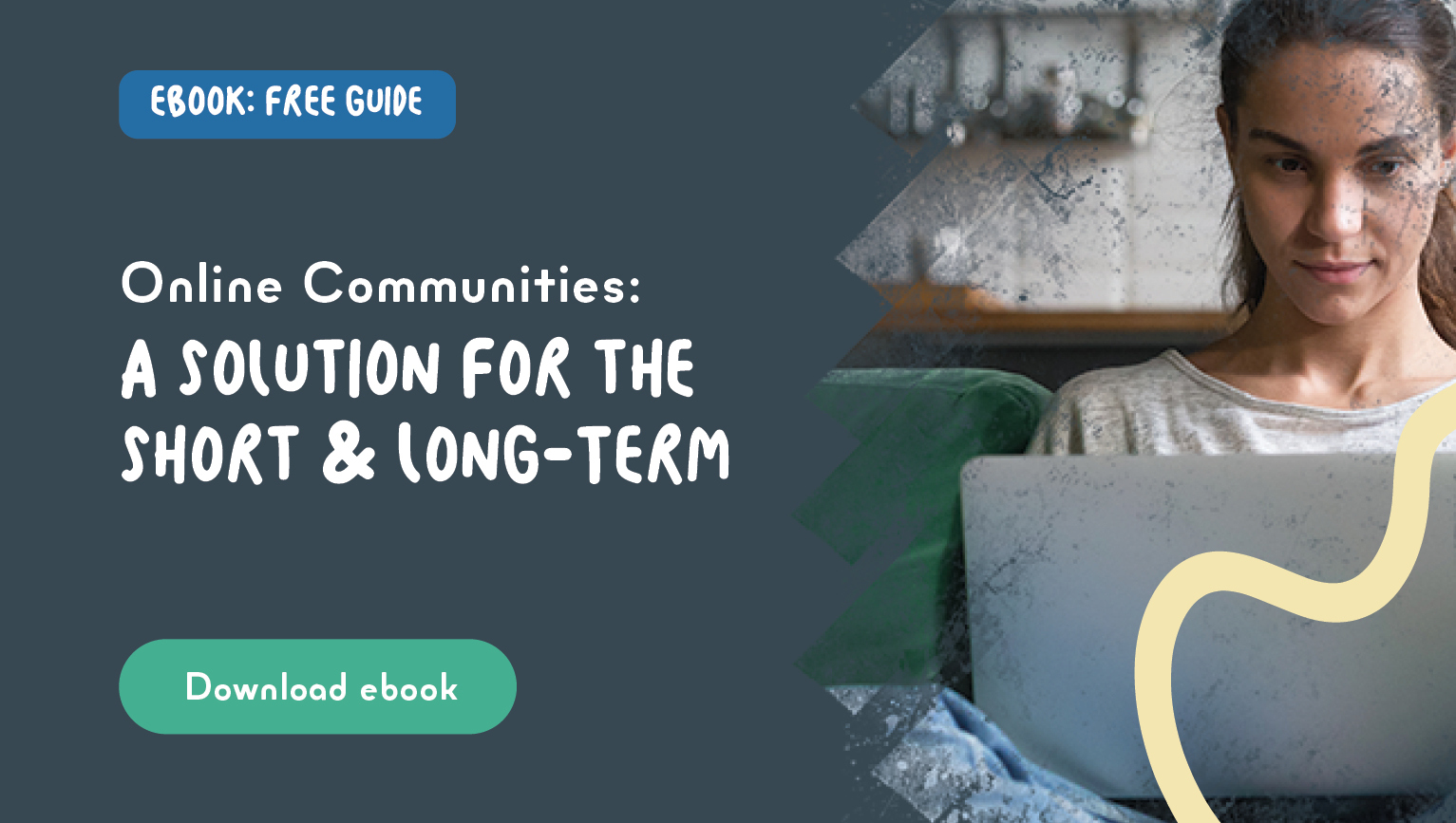Community Management: Understanding Why People Join Communities
Many brands are starting to understand the power of online communities. For consumers this is great news.
A thriving online community is one of the most dynamic ways to connect customers to each other and to you. Yet to have any sort of sustained success, you need to understand what motivates people to join your community in the first place.
Understanding this will let you build a community that satisfies the needs of your members.
Typically there are four types of communities—Interest, Purpose, Circumstance, Practice. Each of these community types will satisfy a variety of motivations for joining.
We’ll highlight some of the deeper motivations for joining online communities and suggest which type of community will be the best fit for each intrinsic motivation.

The Primal Urge To Belong (Interest)
It might surprise you, but what inspires people to join online communities is as basic and primal to life as food, water, shelter, and love. It might sound dramatic, but having a sense of belonging has long been considered a basic human motivator.
People have and always will have a fundamental need for connection.
In other words, people are searching for people like themselves. They are looking for a place where they feel at home when they gather together.
There is great comfort in being among others who are like-minded. You get reassurance that whatever you’re doing is OK. You are OK. In a way, this is akin to feeling accepted, included, connected, and perhaps even special.
Personal / Professional Growth (Practice, Purpose)
Communities can be a tremendous source of information and guidance for both personal and professional growth. In the real world, sharing your thoughts and asking for help can be scary. It’s much easier when you’re sharing in an environment where you have anonymity and feel comfortable.
People motivated by personal growth join communities to improve something in their personal lives. For example, Mumsnet is a place where mums can go to find specific answers to parental questions.
A professional space is where practitioners come together to share knowledge and develop good professional practice. For example, a lawyer could be a member of a community solely for information exchange regarding his/her profession.

Regardless of whether you want to improve personally or professionally, you join because you are essentially looking for answers. Yet what’s wonderful is every community will have members who get fulfillment from helping others. This is why they stick around.
When they begin answering/helping, the community becomes a way to reinforce their identity.
E.g. People answering parental questions feel like they are knowledgeable parents, while a lawyer sharing some unique knowledge gets that recognition from their peers which can establish them as an expert in their field. Both are nice ego boosts.
We all like to talk about the things we know, even more so when the topic of conversation turns to something we are an expert in. It’s our time to shine.
Customers Want A Seat At The Table (Purpose)
The days of one-way communication between brands and consumers have long passed. Marketing is no longer about disrupting people. It’s more personal and consumer-driven than that. People want two-way conversations with the brands they love.
This is why successful brands are no longer driven by educated guesswork. They’re driven by the feedback and participation of their customers.
HubSpot is a great example of this. They have given customers a place to share their pains, suggestions and feature requests. Other members can upvote an idea if it’s something they agree with and HubSpot can filter by the most liked suggestions to see what features their community of users are craving.
By giving customers this space to offer their honest feedback, you are also giving them a voice and making them feel heard. You are giving them a seat at the table. This empowers them and creates a sense of partnership and loyalty.
To Be Themselves (Interest, Circumstance)
A lot of community members join a community because it’s a safe place. They are hidden by the anonymity of the internet and have the freedom to be who they are and ask the questions they need to ask without the fear of judgement.
They don’t have to hide their worries, fears or thoughts. It’s a space where they feel like they belong.
To Be Someone Else (Practice, Interest)
There are also many people who join online communities because it gives them the freedom to be someone they can’t or want to be offline.
Because they don’t have to show their face or share their name, online communities can be incredibly empowering. Nobody knows who you are so you are free to be who you want to be. Members can create a new persona and build connections with others.

This can be especially empowering if someone finds it hard to connect with others offline. The community can provide comfort and help break down social barriers by being able to interact in an alternative way.
Indulge In A Passion (Interest)
When someone has a passion, they want more of it. They want to fill their free time with it.
Yet not everyone will have friends who are into the same hobbies. Sometimes you stumble into a hobby that is a little niche. And, unfortunately, sometimes this interest can fade if you don’t get to engage with people who share it.
When people join online communities based on their passion, they can connect with like-minded individuals and express their opinions in a space where they feel like they belong.
It’s a different experience being surrounded by people who understand what you’re talking about and care to listen.
And it’s far more engaging when the people you are connecting with have an active interest in what’s being talked about. They understand the references, the inside jokes. It’s entertaining.

Be The One To Give People Their ‘Home’
Brands can capitalise on these motivations by being the ones to give people this space. For example, Nike has built a huge network of running enthusiasts from all over the world around a common interest through a branded platform. Even though the topic of the conversation isn’t always on Nike products, they are connecting under Nike’s roof.
The value members get out of the community is directly tied to their brand—even though it’s coming from the community.
Having worked on over 100 community projects over the last 13 years, we know customer communities can be created about anything you can imagine. No matter how niche your industry, there will always be individuals who want to share that interest with like-minded enthusiasts.
We’ve also seen the overwhelmingly positive impact online communities can have. After a short time, the reason members continue to participate shifts. Members find their people. They are home.
